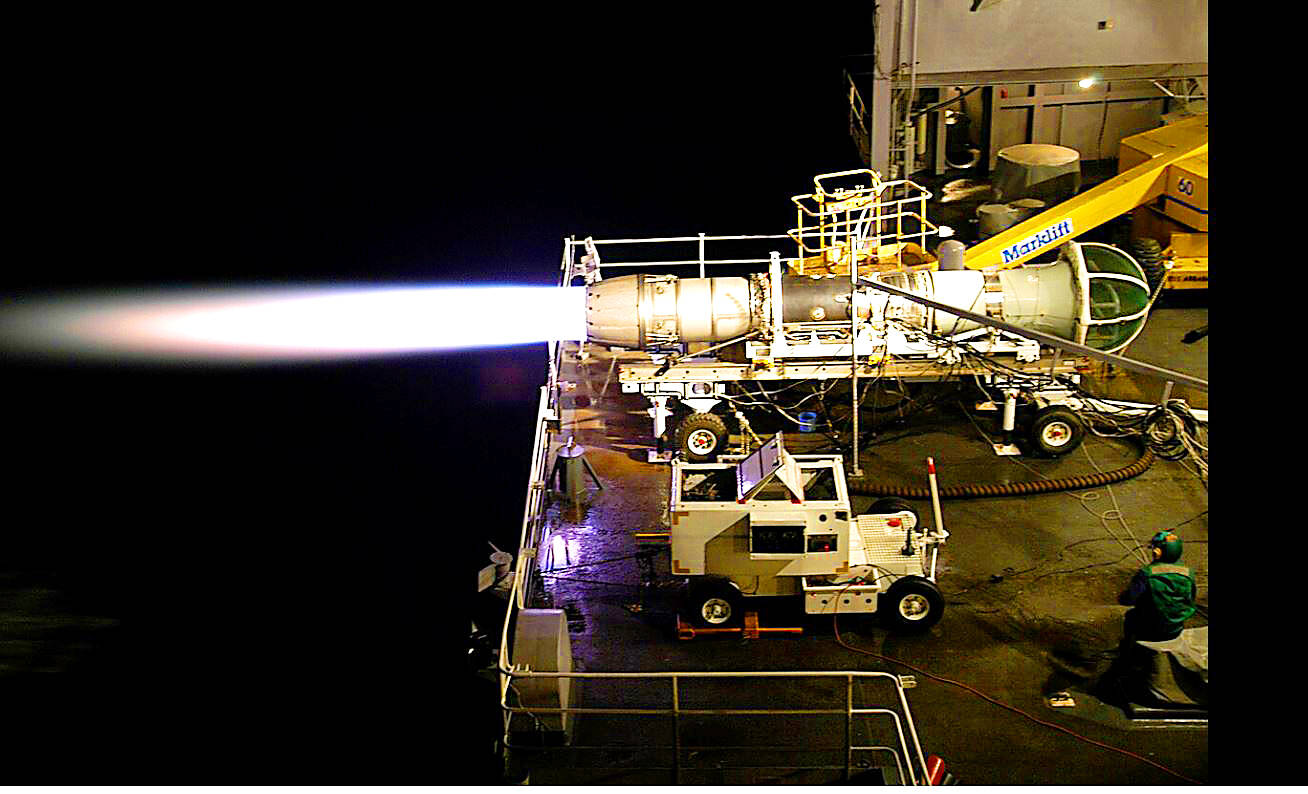The Ministry of National Defense is increasingly turning to General Electric (GE) F414 engines for the planned Advanced Defense Fighter (ADF) program as concerns mount over the nation’s ability to overcome technological bottlenecks, a defense official said on Saturday.
Taiwan’s ADF program intends to produce a fifth-generation tactical fighter using a low observability airframe, internal weapons bay, active electronically scanned array radar system, datalinks and an optional vectored thrust, among other advanced features.
The fighter jet would be a twin-engine design with a combined thrust of 22,000 pounds, an increase from the 18,500 pounds provided by the pair of Honeywell/ITEC F125 turbofans in the AIDC F-CK-1, the source said on condition of anonymity.

Screen grab from Wikipedia
The ministry pursued a double-pronged acquisition strategy for the engines by simultaneously funding the Chungshan Institute of Science and Technology classified Vega Project (織女星計畫) to develop the propulsion systems and soliciting international aerospace firms, they said.
Taking on the technological challenge of indigenously developing modern fighter jet engines was to ensure the nation would not be reliant on an outside source for a major weapon system’s key components, the source said.
The bet did not appear to be paying off as the institute encountered unspecified problems that might have to do with metallurgy techniques required for the high-pressure compressors used in powerful engines, they said.
The institute previously told lawmakers that it has achieved or acquired 12 crucial technologies to build medium-sized turbofan engines but not the large units called for by the ADF program.
However, the ministry would continue to push toward developing the technological know-how to manufacture jet engines while also looking for other solutions, including the General Electric F414, they said.
The US Navy’s F/A-18E/F Super Hornets are jets that use two F414 turbines, which generate 26,000 pounds of thrust altogether, the source said.
A a ministry spokesperson declined to comment on the AFD program, saying that next year’s military budget is still being designed with countering specific threats and operational priorities in mind.
No specific details about the budget can be provided until the Executive Yuan finalizes the ministry’s expenditure limit, they said.

Taiwan has received more than US$70 million in royalties as of the end of last year from developing the F-16V jet as countries worldwide purchase or upgrade to this popular model, government and military officials said on Saturday. Taiwan funded the development of the F-16V jet and ended up the sole investor as other countries withdrew from the program. Now the F-16V is increasingly popular and countries must pay Taiwan a percentage in royalties when they purchase new F-16V aircraft or upgrade older F-16 models. The next five years are expected to be the peak for these royalties, with Taiwan potentially earning

POSITIVE DEVELOPMENT: Japan and the US are expected to hold in-depth discussions on Taiwan-related issues during the meeting next month, Japanese sources said The holding of a Japan-US leaders’ meeting ahead of US President Donald Trump’s visit to China is positive news for Taiwan, former Japan-Taiwan Exchange Association representative Hiroyasu Izumi said yesterday. After the Liberal Democratic Party’s landslide victory in Japan’s House of Representatives election, Japanese Prime Minister Sanae Takaichi is scheduled to visit the US next month, where she is to meet with Trump ahead of the US president’s planned visit to China from March 31 to April 2 for a meeting with Chinese President Xi Jinping (習近平). Japan and the US are expected to hold in-depth discussions on Taiwan-related issues during the

‘LIKE-MINDED PARTNER’: Tako van Popta said it would be inappropriate to delay signing the deal with Taiwan because of China, adding he would promote the issue Canadian senators have stressed Taiwan’s importance for international trade and expressed enthusiasm for ensuring the Taiwan-Canada trade cooperation framework agreement is implemented this year. Representative to Canada Harry Tseng (曾厚仁) in an interview with the Central News Agency (CNA) said he was increasingly uneasy about Ottawa’s delays in signing the agreement, especially as Ottawa has warmed toward Beijing. There are “no negotiations left. Not only [is it] initialed, we have three versions of the text ready: English, French and Mandarin,” Tseng said. “That tells you how close we are to the final signature.” Tseng said that he hoped Canadian Prime Minister Mark Carney

STAY IN YOUR LANE: As the US and Israel attack Iran, the ministry has warned China not to overstep by including Taiwanese citizens in its evacuation orders The Ministry of Foreign Affairs (MOFA) yesterday rebuked a statement by China’s embassy in Israel that it would evacuate Taiwanese holders of Chinese travel documents from Israel amid the latter’s escalating conflict with Iran. Tensions have risen across the Middle East in the wake of US and Israeli airstrikes on Iran beginning Saturday. China subsequently issued an evacuation notice for its citizens. In a news release, the Chinese embassy in Israel said holders of “Taiwan compatriot permits (台胞證)” issued to Taiwanese nationals by Chinese authorities for travel to China — could register for evacuation to Egypt. In Taipei, the ministry yesterday said Taiwan